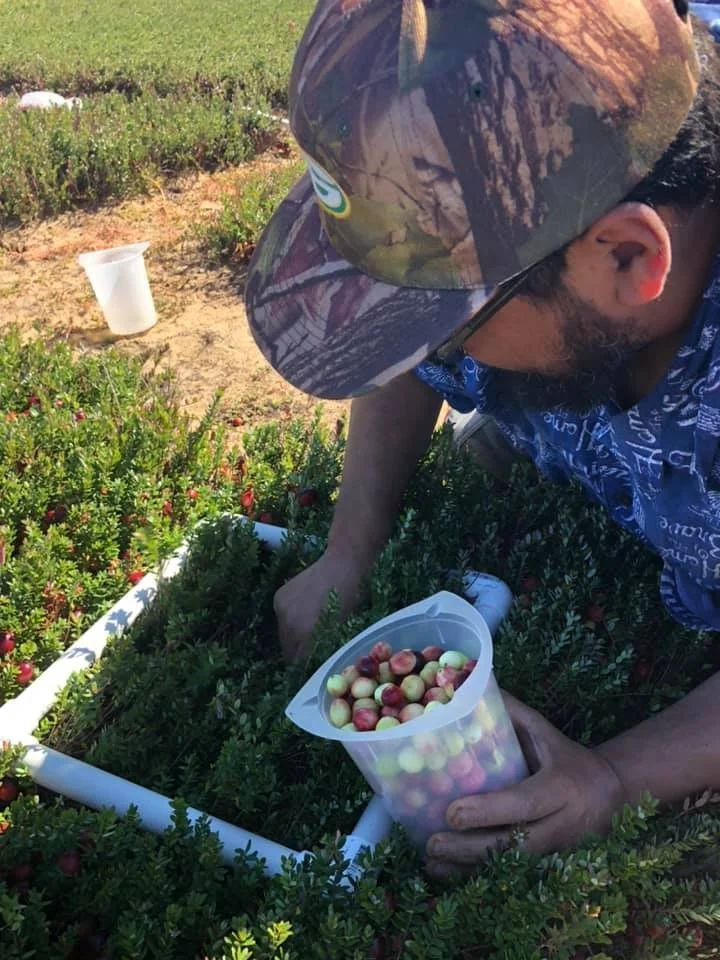Cran Career Spotlight: Plant Geneticist
Overview
The cranberry research geneticist serves as a research scientist assigned to the Vegetable Crops Research Unit located in Madison, Wisconsin. The position provides leadership to the unit in the areas of cranberry germplasm enhancement, genetics, and genomics. The scientist serves on a project developing germplasm enhanced for use by growers, consumers, and researchers, identifying traits useful for cranberry breeders, determining their inheritance, and developing tools for evaluating and broadening the knowledge base of cranberry.
What is this career like?
The cranberry research geneticist pursues specific research projects related to an integrated cranberry genetics, genomics, and genetic improvement program to develop enhanced germplasm and superior new cultivars of cranberry adapted for a short growing season climate with superior productivity and enhanced fruit quality and nutritional characteristics, including more uniform ripening with excellent berry color. The scientist evaluates field performance and quality under current commercial conditions as well as under enhanced production systems utilizing Insect Pest Management (IPM) and water management technologies; evaluates traits and their genes in cranberry germplasm and its relatives to enrich the germplasm database; determines the genetic basis of traits important for crop production, adaptation to cold, postharvest storage and processing, and consumer quality; generates relevant genomic information and molecular genetic breeding tools; incorporates disease and pest resistance and other horticulturally important genes into a form usable by growers; publishes research results in peer reviewed journals and provides supervision to support staff and students.
What skills are needed?
Specialized Experience
1. Knowledge of the principles, practices and techniques of plant genetics and plant breeding.
2. Knowledge of genomics and/or proteomics in order to generate relevant information and molecular genetic breeding tools.
3. Skill in using plant molecular biology techniques to evaluate gene structure and function.
4. Ability to conceive, plan, conduct, and document research in peer reviewed publications on plants and make presentations at scientific meetings.
What education is required?
Qualifications
Basic Requirements:
Research Geneticist (Plants) or Research Molecular Biologist (Plants)
A. PhD degree: genetics; or one of the basic biological sciences that included at least 9 semester hours in genetics.
B. PhD Degree: biological sciences, agriculture, natural resource management, chemistry, or related disciplines appropriate to the position.
This position has a positive education requirement in the form of submitted copies of academic transcripts OR a list of college courses with credit hours, dates completed, and grade point average or class ranking to verify education.
Additional Requirements:
GS-12: Ph.D. or equivalent doctoral degree and one year of specialized experience equivalent to at least the GS-11 grade level in the Federal service. If qualifying based on education, your education must demonstrate that you possess the knowledge, skills, and abilities (see below) necessary to do the work.
GS-13: One year of specialized experience equivalent to at least the GS-12 grade level in the Federal service.
GS-14: One year of specialized experience equivalent to at least the GS-13 grade level in the Federal service.




